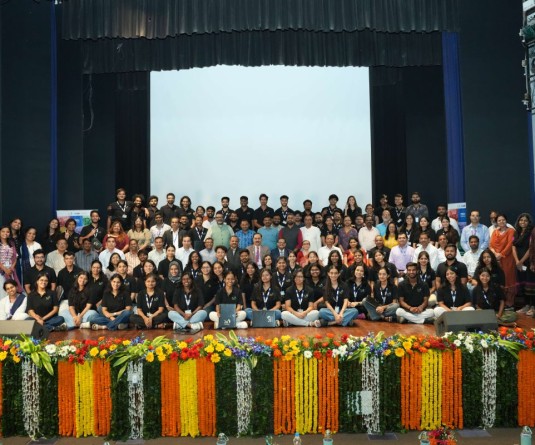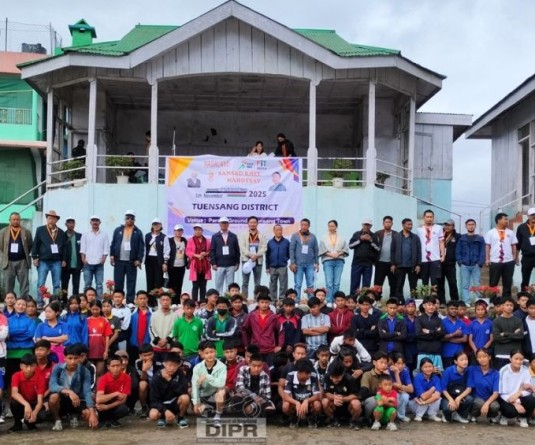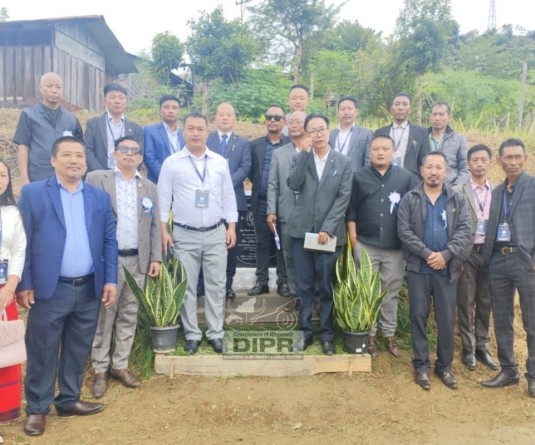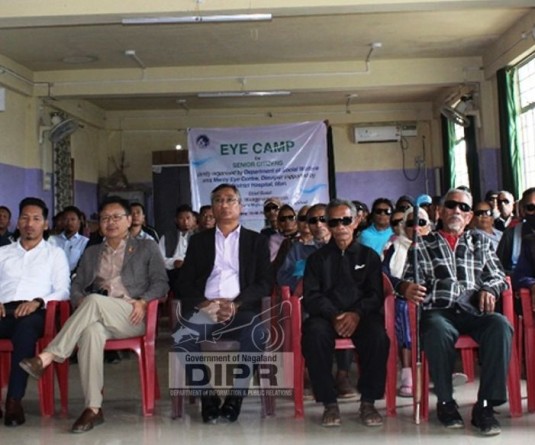
Morung Express News
Dimapur | November 21
Nagas want to be a good neighbor but India is not willing, stated an attendee of the dialogue between the National Alliance for Peoples’ Movement (NAPM) and Naga civil societies held in Dimapur on November 21.
Hosted by the Naga Peoples Movement for Human Rights (NPMHR), it also marked the arrival of the NAPM’s nation-wide yatra, ‘Samvidhan Samman Yatra,’ which began on October 2 at Dandi (Gujarat) and will culminate in Delhi on Human Rights Day, December 10. Dandi is associated with the famous ‘Dandi March’ where Mahatma Gandhi broke the ‘salt law,’ as protest against the British imposed taxation of salt. The team will travel to 28 states in 63 days to listen to stories of peoples’ struggles and lend solidarity to peoples’ movements.
Meera Sanghamitra, the national convener for NAPM Telengana-Andhra Pradesh stated that in the face of increasing oppression on minority and growing communal-corporate nexus, the ‘yatra’ seeks to connect and strengthen peoples’ movements across cultures and community.
Welcoming the NAPM team, Neingulo Krome, Secretary General, NPMHR reminisced of times when Indian civil societies and peoples’ movements lent support to the Nagas at the peak of oppression and militarism. “We want to be a good neighbor but the Indian government doesn’t want that” remarked Dr P Ngully of the Forum for Naga Reconciliation (FNR) during the interaction.
‘Divide and rule policy’
“We are and were never a part of India and the Indian government flexing muscles through the Armed Forces Special Powers Act (AFSPA) to oppress and subjugate the Nagas is not acceptable,” he added.
AFSPA was imposed not to curb the armed movement but it is a structural violence “aimed at destroying the integrity of the Nagas,” Nipuni Piku of FNR meanwhile argued. The Act dehumanizes people and creates distance and conflict among the people. “This is where we seek your understanding,” he underscored. “The Naga movement is not a case of tribal insurgency but a question of national identity.”
Negating India’s claim that the Nagas became a part of India with the transfer of power, Nipuni posed, “How can the future of a nation be transferred from one hand to another?” Questions on citizenship, status of Naga women, Hindutva ideology and others were also raised during the day-long dialogue.
“Naga society is truly unique and we need time to understand it,” Aryaman Jain, a member of the NAPM team opined. In February, he had interviewed nine Naga women candidates in the fray just before the election to the13th Nagaland Legislative Assembly.
The dialogue also witnessed the sharing of concerns from Naga Council Dimapur, Kuki Mother’s Association (KMA), ACAUT, Business Association of Nagaland, Naga Women Hoho Dimapur, and Naga Students’ Federation (NSF).






